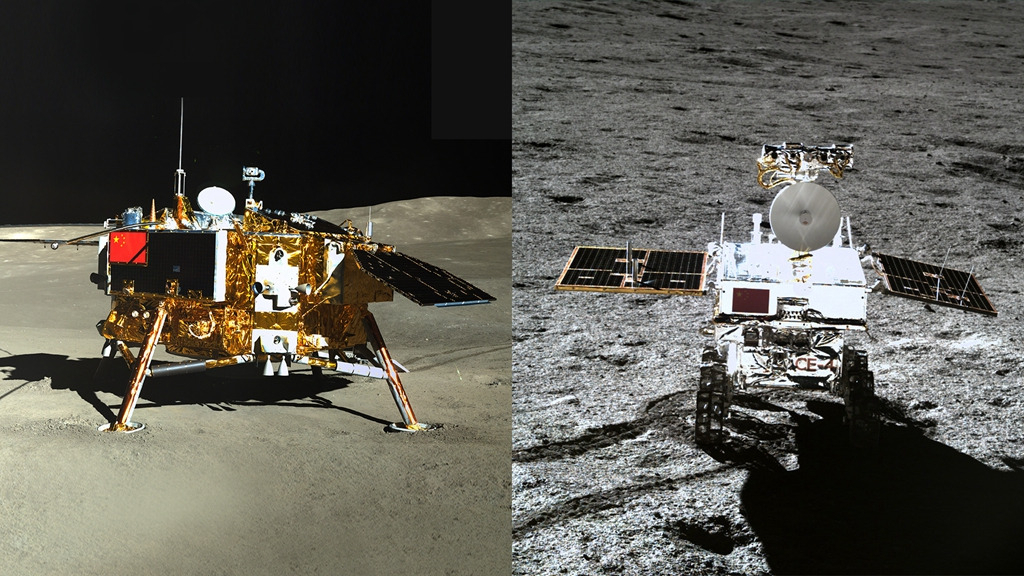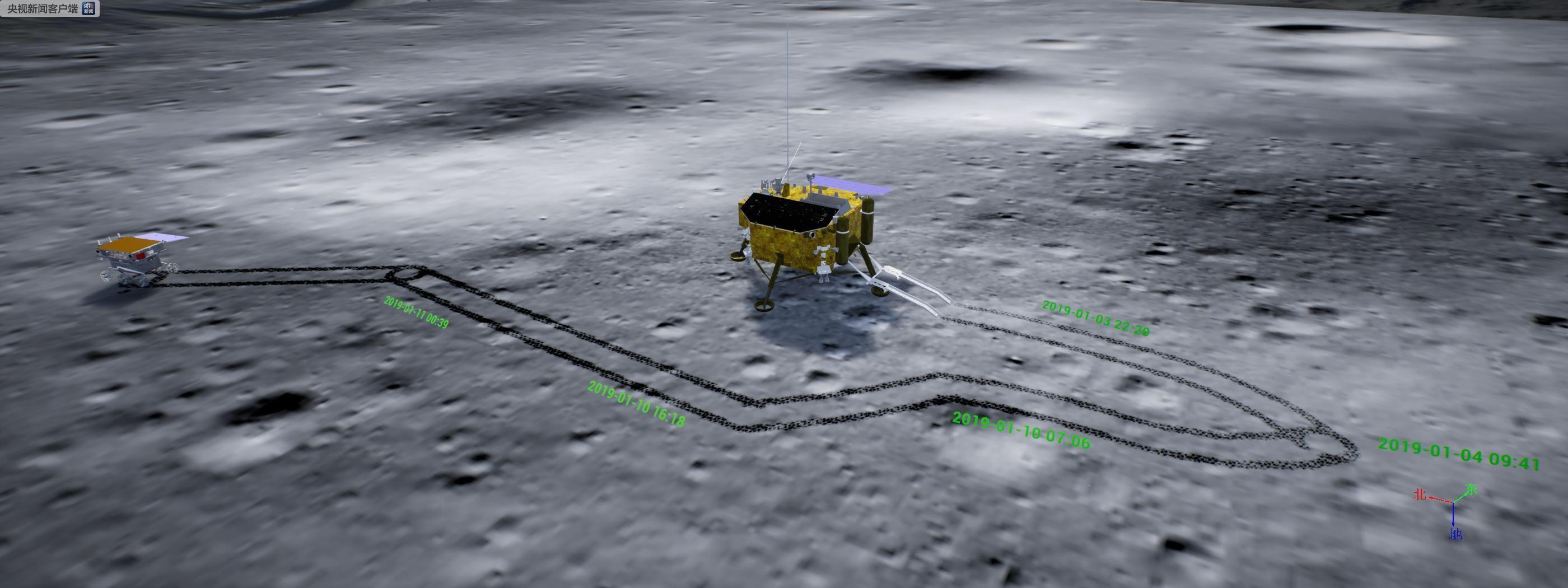
Technology
13:13, 31-Jan-2019
China's lunar lander and rover 'wake up' after two-week nap
Updated
17:45, 31-Jan-2019
By Wu Lei, Li Qian
00:47

China's Chang'e-4 lunar lander was awakened by sunlight at 20:39 BJT on Wednesday to continue its mission on the far side of the Moon.
Earlier, the rover called Yutu-2 woke up at around 20:00 BJT on Tuesday.
They were put to sleep as night fell roughly two weeks ago.

The walking route of China's lunar rover Yutu-2 on the far side surface of the Moon. /CCTV Photo
The walking route of China's lunar rover Yutu-2 on the far side surface of the Moon. /CCTV Photo
The two instruments successfully withstood the test of the extremely low-temperature environment on the far side of the Moon.
According to the change of the solar altitude, they autonomously exited the "moon night sleep mode".
The key equipment was powered on successively according to the preset procedure and passed the first lunar night safely.
Currently, the rover is located about 18 meters northwest of the lander. The two devices work normally and communicate with the ground and transmit data stably through the relay satellite Queqiao.
According to the first night's temperature detection data, the temperature on the lunar surface plunged to a minimum of minus 190 degrees Celsius during the night.
A low-temperature environment for a long time poses a severe challenge to the survival of lunar probes, while Chang 'e-4 successfully solved the problem of no illumination and low temperature by providing heat for the probe through the configuration of an isotope heat source.
A day and night on the Moon is equivalent to about 28 days on the Earth. During the first lunar-day period, the Chang 'e-4 lander and the rover successfully completed their engineering tasks, and the scientific payloads successfully started up. The landing area was ringed by the lander topography camera and a color panorama was obtained.
During the second lunar-day period, the scientific payloads will continue scientific exploration as planned.
(Cover: The lander of Chang'e-4 lunar probe (L) and the rover Yutu-2 /CNSA Photo)

SITEMAP
Copyright © 2018 CGTN. Beijing ICP prepared NO.16065310-3
Copyright © 2018 CGTN. Beijing ICP prepared NO.16065310-3